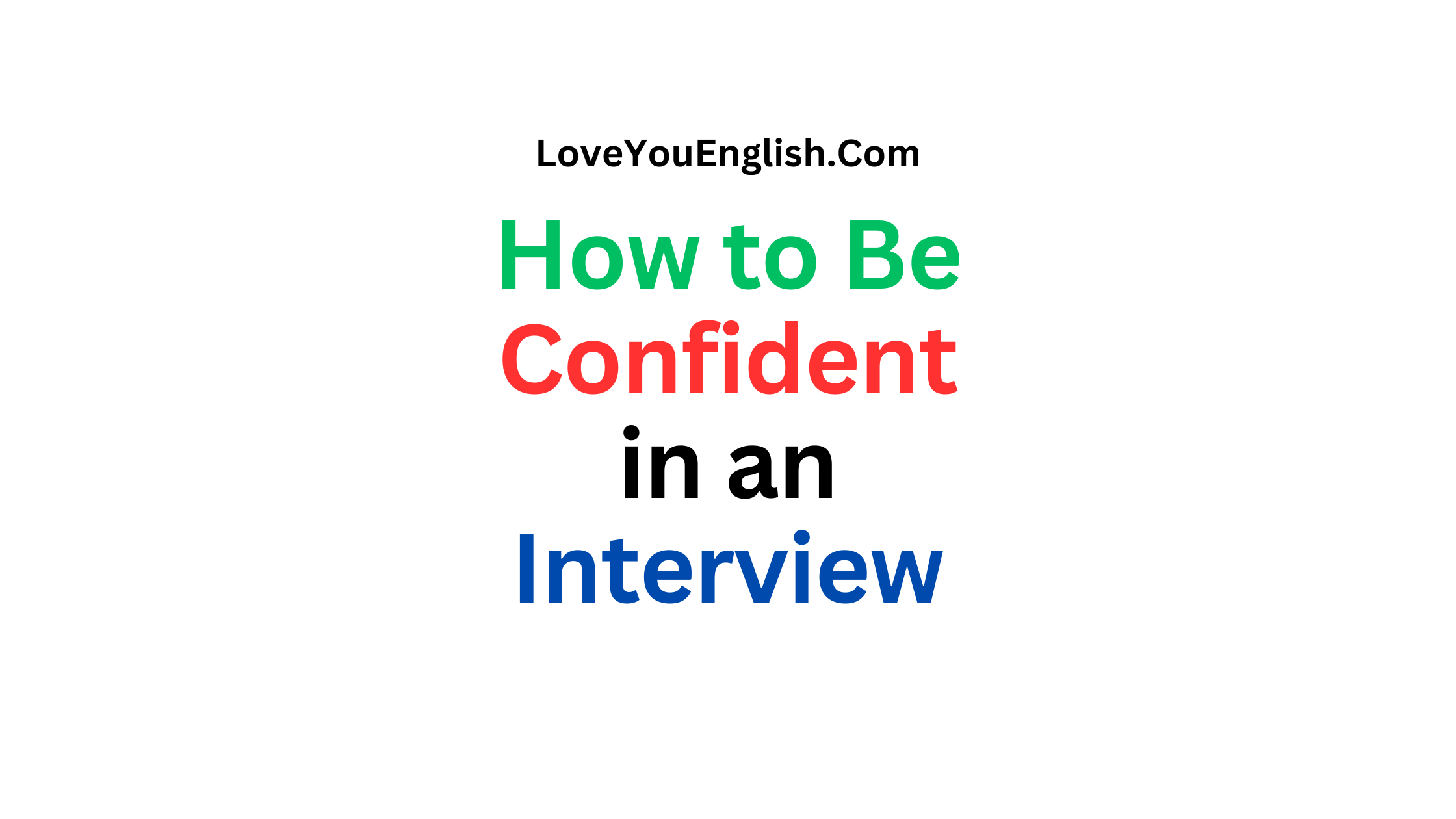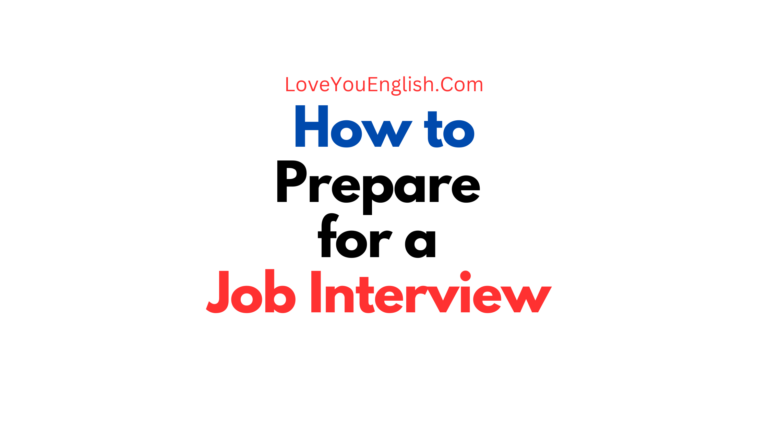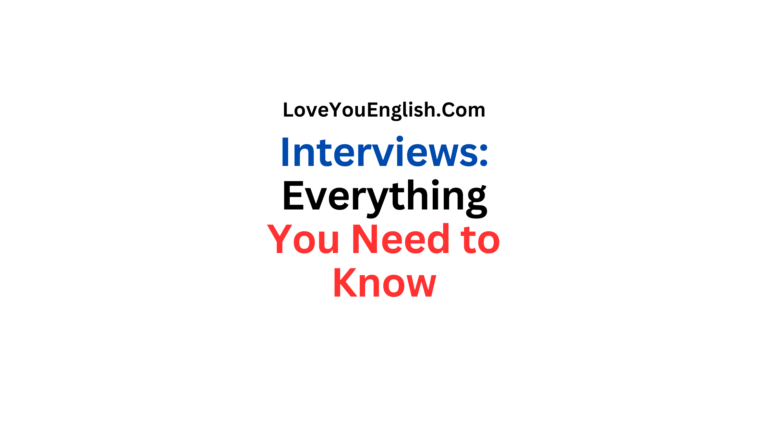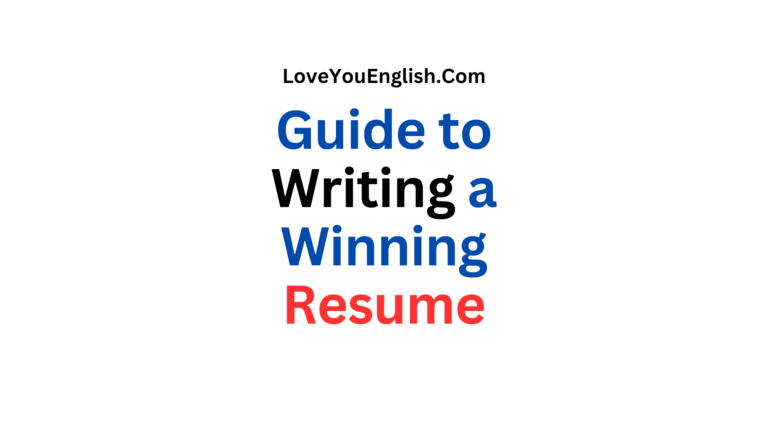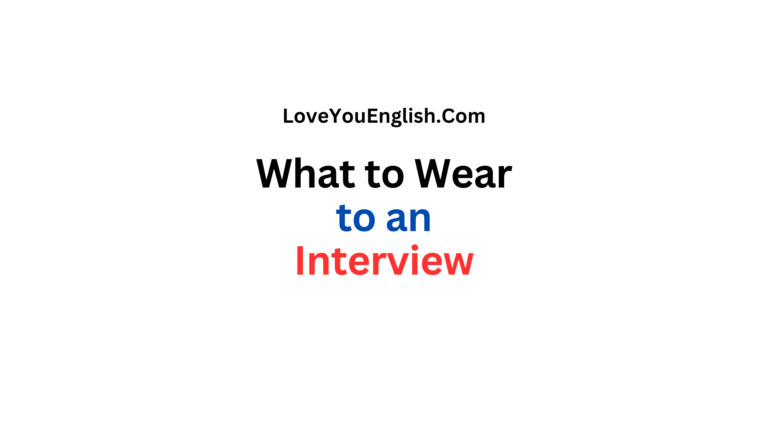How to Be Confident in an Interview (and Not Arrogant)
How to Be Confident in an Interview (and Not Arrogant)
Job interviews can be really stressful.
You want to show off your skills and experience, but you also don’t want to seem too full of yourself.
It’s important to find the right mix of confidence and humility to make a good impression and get the job.
In this article, we’ll talk about ways to show confidence in an interview without being arrogant.
Understanding the Difference Between Confidence and Arrogance
Before diving into specific techniques, it’s important to understand the fundamental difference between confidence and arrogance:
Confidence is about believing in yourself and your abilities.
It comes from a place of self-assurance and inner strength.
Confident people are comfortable in their own skin and don’t feel the need to tear others down or constantly prove themselves.
Arrogance, on the other hand, stems from insecurity and a need to feel superior to others.
Arrogant people often overcompensate by bragging, dismissing others’ accomplishments, or acting like they know everything.
In an interview context:
- A confident candidate highlights their relevant skills and experiences without exaggeration.
- An arrogant candidate boasts about being the best and puts down other candidates or previous employers.
Now that we’ve established this key distinction, let’s look at practical ways to showcase confidence without crossing the line into arrogance.
You may want to read:
- Common Job Interview Questions and How to Answer Them
- Can English Help You Get That Promotion at Work?
- 10 Common Interview Questions and Answers in English
- 6 Ways to Build Confidence at Work
- How to Prepare for a Job Interview in English
Prepare Thoroughly
One of the best ways to feel genuinely confident is to be well-prepared.
When you’ve done your homework, you’ll be able to speak knowledgeably and articulately about the role, the company, and your own qualifications.
Research the company: Study the company’s website, recent news articles, social media presence, and any other publicly available information.
Understanding their mission, values, products/services, and recent developments will allow you to speak intelligently about why you’re interested in the role and how you can contribute.
Review the job description: Analyze the key requirements and responsibilities.
Prepare specific examples from your background that demonstrate your relevant skills and experiences.
Practice common interview questions: While you can’t predict every question, there are many standard ones you’re likely to encounter.
Practice articulating clear, concise answers to questions like:
- Tell me about yourself
- Why are you interested in this position?
- What are your greatest strengths and weaknesses?
- Tell me about a time you faced a challenge at work
- Where do you see yourself in 5 years?
Prepare thoughtful questions: Having insightful questions ready shows you’ve done your research and are genuinely interested in the role.
It also helps you evaluate if the position is truly a good fit for you.
By thoroughly preparing, you’ll feel more relaxed and able to engage in a natural conversation during the interview, rather than struggling to come up with answers on the spot.
Body Language and Non-Verbal Communication
Your non-verbal cues can speak volumes about your confidence level.
Here are some tips for projecting confidence through your body language:
Posture: Stand and sit up straight with your shoulders back. Good posture makes you appear more confident and engaged.
Eye contact: Maintain appropriate eye contact throughout the interview.
This shows you’re attentive and comfortable. If multiple interviewers are present, make eye contact with each person as you speak.
Smile: A genuine smile helps you appear approachable and at ease. Don’t force it, but do try to relax and let your natural warmth shine through.
Handshake: Offer a firm (but not crushing) handshake when greeting your interviewer(s). This small gesture can set a positive tone for the interaction.
Avoid fidgeting: Try not to play with your hair, tap your fingers, or engage in other nervous habits. These can make you appear anxious or distracted.
Use open body language: Avoid crossing your arms or legs, which can make you seem closed off. Instead, keep an open posture to appear receptive and engaged.
Mirror the interviewer: Subtly matching the interviewer’s tone and energy level can help build rapport.
If they lean in, you might do the same. If they speak softly, modulate your voice accordingly.
Remember, confident body language should feel natural, not forced.
Practice these techniques beforehand so they become second nature during the actual interview.
Speak with Clarity and Purpose
How you communicate verbally is just as important as your non-verbal cues. Here are some strategies for speaking confidently:
Use a clear, steady voice: Speak at a moderate pace and volume.
Avoid rushing through your answers or speaking too softly, which can make you seem nervous.
Eliminate filler words: Try to minimize use of “um,” “uh,” “like,” and other filler words that can make you sound unsure.
It’s okay to take a brief pause to gather your thoughts before answering.
Be concise: While you want to provide complete answers, avoid rambling.
Make your key points clearly and succinctly.
Use active language: Phrases like “I achieved,” “I led,” or “I created” sound more confident than passive constructions like “It was achieved” or “The team did.”
Avoid qualifiers: Phrases like “I think,” “maybe,” or “sort of” can undermine your message.
If you’re stating a fact or opinion, do so directly.
Practice active listening: Show that you’re engaged by nodding, maintaining eye contact, and responding thoughtfully to what the interviewer is saying.
Ask for clarification if needed: If you don’t fully understand a question, it’s better to ask for clarification than to guess and give an irrelevant answer.
By speaking clearly and purposefully, you’ll come across as composed and self-assured.
Showcase Your Achievements (Without Bragging)
A key part of the interview is highlighting your relevant accomplishments.
The trick is to do this in a way that demonstrates your value without seeming boastful.
Here are some tips:
Use the STAR method: When discussing your achievements, use the Situation, Task, Action, Result framework.
This helps you tell a complete story that showcases your skills in action.
Provide specific, measurable results: Instead of vague statements like “I improved sales,” say something like “I implemented a new outreach strategy that increased sales by 25% over six months.”
Give credit where it’s due: If your accomplishment was part of a team effort, acknowledge that.
You might say, “As part of a five-person team, I took the lead on X aspect of the project, which contributed to our overall success.”
Let your achievements speak for themselves: Present your accomplishments factually without added superlatives or comparisons to others.
Connect your achievements to the job at hand: Always tie your past successes back to how they make you well-suited for the position you’re interviewing for.
Be prepared to discuss failures too: Confidently discussing times you’ve failed or faced challenges (and what you learned from them) can be just as impressive as talking about your successes.
Remember, the goal is to clearly communicate your value and experience, not to impress the interviewer with how amazing you are.
Show Genuine Interest and Enthusiasm
Confidence isn’t just about talking about yourself—it’s also about engaging with the interviewer and showing real interest in the role and company.
Here’s how to do that:
Ask thoughtful questions: Prepare questions that show you’ve done your research and are truly interested in the position.
For example:
- “I read about your recent expansion into Asia. How does that impact this role?”
- “Can you tell me more about the team structure and how this position fits in?”
Express enthusiasm: Let your genuine excitement for the opportunity shine through.
You might say something like, “I’m really excited about the possibility of contributing to your AI initiatives, especially given my background in machine learning.”
Discuss industry trends: Showing that you keep up with developments in your field demonstrates both knowledge and passion.
You could say, “I’ve been following the recent debates about AI ethics. How is your company approaching these challenges?”
Connect your goals to the company’s mission: Explain how the role aligns with your career aspirations and values.
This shows that you’ve thought seriously about why you want this particular job.
Be open to learning: Express your eagerness to grow and develop in the role.
You might say, “I’m particularly excited about the opportunity to expand my skills in data visualization as part of this position.”
By showing genuine interest and enthusiasm, you demonstrate confidence in your fit for the role without coming across as entitled or arrogant.
Handle Tough Questions with Grace
How you respond to difficult or unexpected questions can be a true test of your confidence.
Here are some strategies:
Stay calm: Take a deep breath and remember that it’s okay to take a moment to think before you respond.
Be honest: If you don’t know something, it’s better to admit it than to try to bluff your way through.
You might say, “That’s an interesting question. I don’t have direct experience with that, but here’s how I would approach learning about it…”
Turn negatives into positives: When discussing weaknesses or past mistakes, focus on what you learned and how you’ve grown from the experience.
Redirect if necessary: If asked an inappropriate question, politely steer the conversation back to your qualifications for the job.
Ask for clarification: If you’re not sure what the interviewer is asking, it’s perfectly acceptable to ask them to rephrase or provide more context.
Provide a balanced perspective: When asked about controversial topics or to compare yourself to others, strive for a nuanced, thoughtful response rather than an extreme position.
The key is to remain composed and thoughtful, even when faced with challenging questions.
Demonstrate Humility and a Growth Mindset
While confidence is crucial, it’s equally important to show humility and a willingness to learn and grow.
Here’s how to strike that balance:
Acknowledge areas for improvement: Be honest about skills you’re still developing.
You might say, “While I have a strong foundation in Python, I’m excited to deepen my expertise in machine learning algorithms in this role.”
Show appreciation for learning opportunities: Express gratitude for past experiences that have helped you grow.
For example, “I’m thankful for the mentorship I received in my last role, which really helped me develop my project management skills.”
Be open to feedback: Discuss how you’ve used constructive criticism to improve. This shows that you’re coachable and committed to personal growth.
Recognize others’ contributions: When discussing team accomplishments, give credit to your colleagues’ efforts as well as your own.
Express curiosity: Ask questions that show you’re eager to learn more about the role, the team, and the company’s approach.
Avoid comparisons: Focus on your own journey and growth rather than comparing yourself to others or putting down previous employers.
By demonstrating humility alongside your confidence, you show that you’re self-aware, emotionally intelligent, and pleasant to work with.
Follow Up with Confidence
Your behavior after the interview is also important in projecting confidence:
Send a thank-you note: Within 24 hours, send a brief, personalized email thanking the interviewer for their time and reiterating your interest in the position.
Reiterate key points: Use the thank-you note as an opportunity to briefly reinforce why you’re a great fit for the role, based on what you learned during the interview.
Address any missed opportunities: If you forgot to mention something important during the interview, you can briefly bring it up in your follow-up.
Be patient: Resist the urge to constantly check in on the status of your application. Trust that you’ve put your best foot forward and give the employer time to make their decision.
Be prepared for next steps: If you’re invited for another interview or asked to provide additional information, respond promptly and professionally.
A confident, professional follow-up reinforces the positive impression you made during the interview.
Conclusion
Projecting confidence in an interview without crossing into arrogance is a delicate balance, but it’s achievable with the right mindset and preparation.
Remember these key points:
- Thoroughly prepare so you can speak knowledgeably about the role and company.
- Use positive body language to nonverbally communicate confidence.
- Speak clearly and purposefully, avoiding filler words and vague language.
- Highlight your achievements using specific examples and measurable results.
- Show genuine enthusiasm for the role and company.
- Handle tough questions with grace and honesty.
- Demonstrate humility and a growth mindset alongside your confidence.
- Follow up professionally after the interview.
By using these techniques, you can display your talents and background in a manner that shows both confidence and modesty.
This mix will impress your interviewers and improve your chances of getting the job.
Remember, real confidence comes from knowing yourself, being ready, and believing in your skills.
Concentrate on these things to show your true self during interviews.
_____________________________

